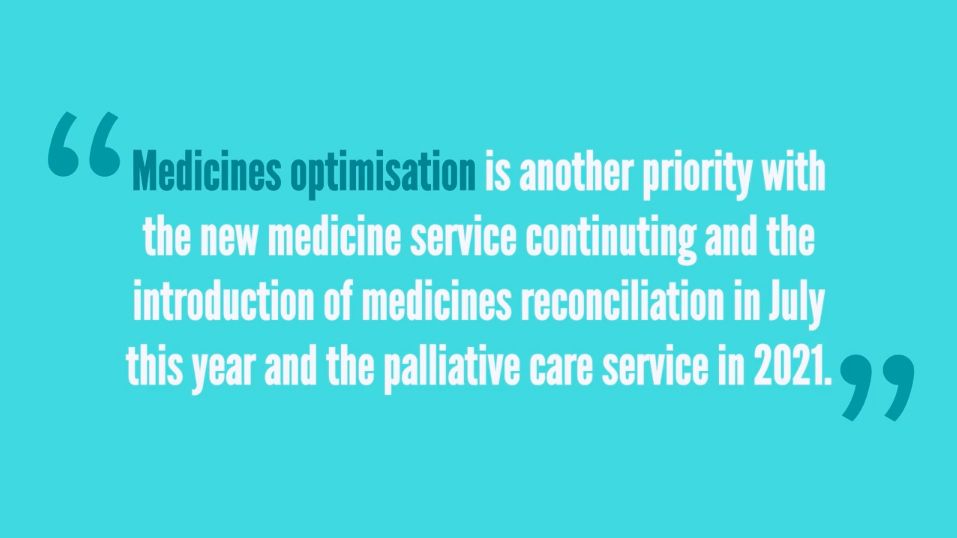
Helping patients use their medicines effectively is a priority for all pharmacists. Non-adherence with agreed medication regimens can be as high as 33-50 per cent and the impact on patients and the NHS of the harm caused by adverse drug reactions (ADRs) is significant.
Pharmacists and their teams can support patients to:
- Use their medicines appropriately and safely
- Avoid harm caused by ADRs
- Adhere to agreed regimes to maximise the benefit of their medicines.
The New Medicine Service (NMS) will continue within the CPCF and there are plans to expand the range of indications and conditions, where supporting patients when they start a new medicine will add value.
A medicines reconciliation service to support a patient’s transition back into the community after a hospital stay will be implemented in July 2020 to reduce errors that occur when medications have been changed during an inpatient stay. This will build on the Transfer of Care Around Medicines (TCAM) service being launched in many areas through the Academic Health Sciences Networks (AHSNs).
A palliative care service will also be introduced to ensure access to palliative care medicines. This service will be piloted in 2020/21 and, if successful, will be implemented in 2021/22.
MURs will be phased out by the end of 2020/21. Pharmacies will be able to undertake 50 MURs in the second six months of 2019/20 and 100 MURs in 2020/21 (targeted patient groups will be announced before April 2020). MURs will be replaced by Structured Medication Reviews (SMRs) provided by pharmacists employed by primary care networks. The funding previously allocated to MURs will be recycled into the Community Pharmacist Consultation Scheme.
